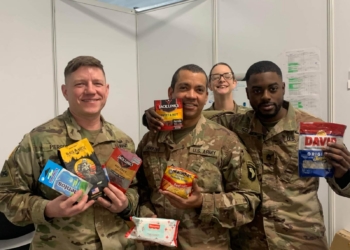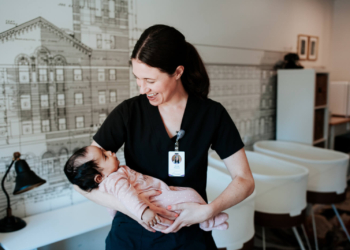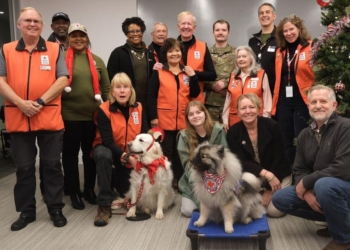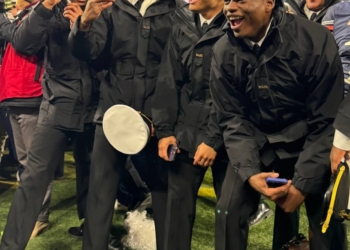While pets can provide comfort and companionship to the uncertainty of military life, they’re not for everyone. Preparation can prevent a situation where families might be separated from their furry companion, but fostering and volunteering can allow service members and their loved ones to spend time with animals without the long-term commitment.
Preventing animal surrender
While some military pets travel and PCS as a permanent member of the family, others are surrendered to shelters or in need of new homes.
Kimberly Lambert, animal care supervisor at the Humane Society of El Paso (HSEP), said that when animal surrender happens, “they’re not giving them up because they don’t love their animal; circumstances haven’t allowed them to keep that animal and so it’s heartbreaking.”
Lambert said common reasons people might not be able to keep their animals are breed restrictions, budgeting issues, last-minute moving situations and family changes like divorce. Many surrendered animals have a difficult time with the change and Lambert said that “as hard as our staff works to make it a comfortable place, it’s not home.”
Roughly 6.3 million “companion animals” enter U.S. shelters annually, according to the American Society for the Prevention of Cruelty to Animals (ASPCA), and “pet problems” are the most common reason for owner surrenders.
“We have to be financially stable when we’re ready to take on that animal because that animal is depending on us for that care,” Lambert said, noting costs like vet bills and boarding, as well as surrender fees if the animal is brought back to the shelter.
She recommended researching pet and breed behavior.
“Don’t stick with animals just because they’re aesthetically pleasing,” Lambert said. “Find one that’s going to fit your lifestyle.”
Staff can help potential adopters choose an animal and locate community resources. In difficult moving or deployment situations, options include boarding, PCS pet grants or rehoming with a friend or acquaintance.
Fostering as an alternative
Julie Bogen, a Navy spouse stationed at Walter Reed National Military Medical Center, began fostering cats because her husband traveled for medical school rotations.
“It gave us the space to snuggle and spoil something without putting us in a position of having to deal with the logistics of moving with an animal or finding boarding every time we were going to be out of state,” she said.
They fostered a variety of kittens and cats, some who needed more care like bottle feeding, and one who was lost and reunited with their family.
Abby Ammons, an Army spouse stationed at Fort Bragg who volunteers for It Takes a Village Rescue in North Carolina, started fostering in 2020 when shelters were navigating COVID-19 pandemic safety.
“I wasn’t sure how I could help the larger problems of the world, but I knew I could open my home to an animal in need,” Ammons said.
The rescue organization covers the cost of food and vet bills, according to Ammons.
“Your main donation is only time and attention,” Ammons said. “Fostering can last weeks or months, depending on the health of the animal, availability for vet check-ups and vaccines, and finding the best applicants for a dog’s new family.”
The first time Ammons volunteered to take a dog in need of a foster was intimidating.
“I raced to the shelter where the staff brought out a young female, dirty and scared, of myriad breeds, and in heat. She was unsure but gentle,” Ammons said. “They asked if I wanted her. I was afraid I had bitten off more than I could chew, but what was the alternative? She melted into me that night. Relaxed and safe, she fell asleep and snored, finally trusting us enough to let her guard down.”
The Ammons family ultimately adopted her and has since fostered other dogs.
Katharina Ingle, a military spouse who volunteered and fostered at HSEP, said it was important that she introduce her youngest child to each dog before bringing it into their home.
“It helped my children and me to fill the void of not having a dog of our own, without the big commitment,” Ingle said.
They adopted their foster Sadie before moving to their next duty station. For military families considering adopting she recommended waiting until the next duty station is known.
Adopting, fostering, or volunteering are ways to spend time with animals, but finding the right fit so families aren’t faced with rehoming an animal is necessary. Lambert said that despite the joy pets bring, “sometimes we’re not ready for that, and sometimes we’re not prepared for it.”

































